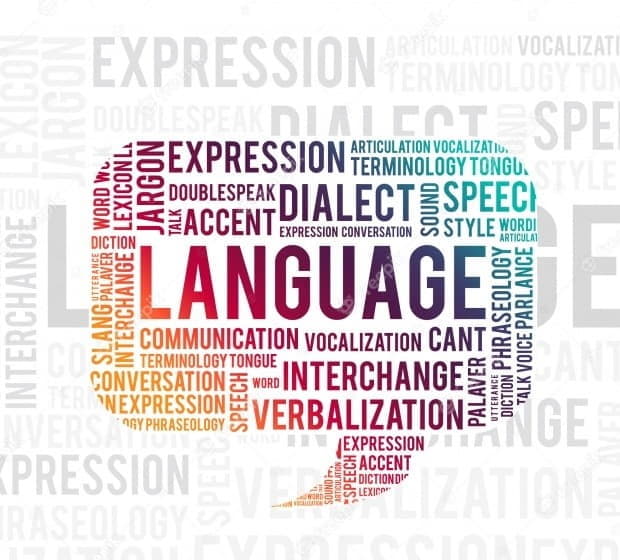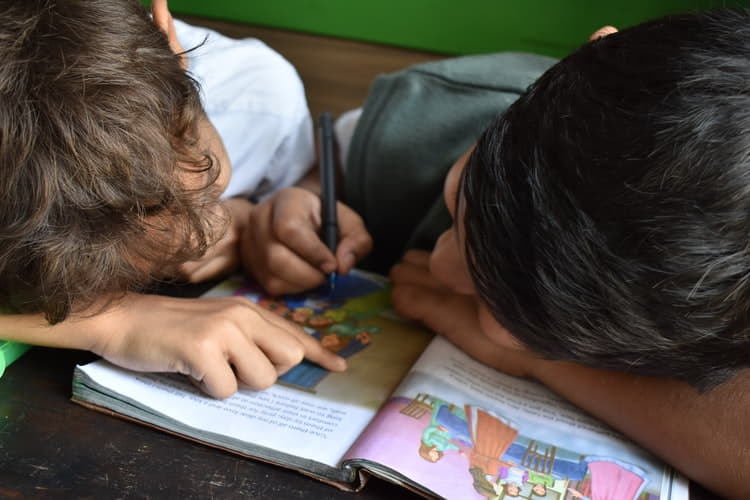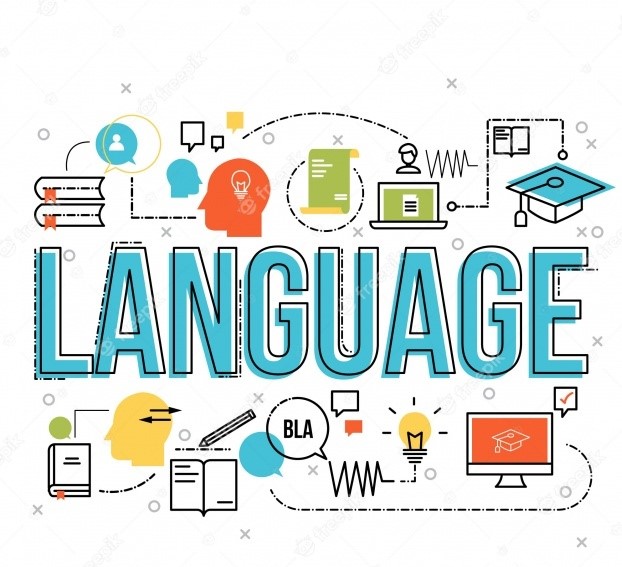India is a multilingual country. The central, as well as the State Governments, have been taking necessary steps for the promotion and preservation of Indian languages. Currently, the Indian constitution recognizes 22 major languages of India and 12 scripts in what is known as the 8th schedule of the constitution.

22nd languages of India are: Assamese, Bengali, Bodo, Dogri, Gujarati, Hindi, Kannada, Kashmiri, Konkani, Maithili, Malayalam, Manipuri, Marathi, Nepali, Oriya, Punjabi, Sanskrit, Santhali, Sindhi, Tamil, Telugu, Urdu.
The languages that were added by the 92nd constitutional amendment of 2003 are Bodo, Dogri, Maithili, Santhali.
Important points:
- Official languages of India that are to be used for official purposes throughout India are: Hindi and English
- According to National Commission for Linguistic Minorities, Linguistic minorities are, “any group of people whose mother tongue is different from the principal language of the state.”
- Part XVII of the Indian constitution deals with the official languages of India: Articles 343- 351.
- According to United Nations, the term minority includes only those non-dominant groups in a population who wish and possess to preserve ethnic, stable, religions or linguistic traditions/ characteristics different from those of the rest of the population.
Which is the oldest language in India?
Sanskrit is the oldest language in India. It is 5000yrs old. Almost all the ancient manuscripts like Jainism, Buddhism, and Hinduism are written in this language.
What is Language policy?
The Language Policy of India is related to the use of languages in education, administration, judiciary, mass communication, legislature, etc. It is both language-survival oriented and language-development oriented. The language policy aims to encourage the citizens of India to use their mother tongue in certain delineated levels and domains in gradual processes and also to help all languages to develop and be used as a communication medium at their designated areas of use, irrespective of their nature, status or tribal languages.
CENTRAL INSTITUTE OF INDIAN LANGUAGES (CIIL), MYSORE:
The Central Institute of Indian Languages (CIIL) at Mysore is a subordinate office of the Ministry of Human Resource Development. CIIL was set up to help in evolving and implementing the language policy of the Government of India. It also aims to coordinate the development of the Indian languages by researching the areas of language technology, language pedagogy, language analysis, and language use in society.
What is Technology Development for Indian Languages (TDIL)?
Technology Development for Indian Languages (TDIL) program is an initiative by the Ministry of Electronics and Information Technology (MeitY), Government of India.
What are the objectives of TDIL?
- the proliferation of language technology, to develop technologies to access multilingual knowledge resources,
- research and development of language technology,
- objective to develop information-processing tools to facilitate human-machine interaction in Indian languages,
- development of standards related to language technology through participation in national and international bodies like World-Wide-Web Consortium (W3C), ISO, BIS (Bureau of Indian Standards), ELRA, UNICODE, etc.
Vision: Digital unite and knowledge for all.
Mission: Communicating and moving up the knowledge chain by overcoming the language barrier.

Department of Information Technology
The Department of Information Technology has commenced a major national initiative ‘National Roll-Out Plan’ for the wider proliferation of Indian language Software Fonts and Tools. It is made available to all through a web-based Indian Language Data Centre.
Department of Official Language
One of the main functions of the Department of Official Language is to implement the provisions of the Indian constitution relating to the official language and the provisions of the Official Languages Act. The users can get information about different departments and their activities, and also about other institutions like the Central Translation Bureau, Regional Implementation Office, etc.
Kendriya Hindi Sansthan
Kendriya Hindi Sansthan, Agra is a fully funded autonomous organization with six regional centers at Hyderabad, Mysore, Delhi, Guwahati, Shillong, Dimapur. Bhubneshwar, the extension Centre is responsible for the expansion and propagation of the use of Hindi. The main functions of the Kendriya Hindi Sansthan are: –
- To train Hindi teachers for the non-Hindi speaking areas;
- Courses in Journalism, Translation, Linguistics, etc.;
- To undertake comparative linguistic studies of Hindi and other Indian languages
- To develop the latest methodologies of Hindi Language teaching;
- To provide facilities for higher studies in Hindi Language and literature;
- Award to Scholars in Hindi -Hindi Sevi Samman.

Indian Language Promotion Council
The objective of the Indian Language Promotion Council is to advise the Government of India on measures that are to be taken, for the development, promotion, and propagation of the Indian languages listed in the eighth schedule of the constitution of India.
Linguistic Data Consortium for Indian Languages (LDC-IL)
Language data is the key ingredient in terms of research and development in the area of language technology. The issues surrounding collection, processing, and annotation of the quantities of linguistic data encompass to make it necessary to involve several disciplines like linguistics, statistics, engineering, etc. The data thus collected will be of high quality with defined standards. India must create a data consortium for sharing resources and avoids duplication of efforts so that the entire research community is benefited. The consortium will not only create and manage large Indian languages databases, but it will also provide a forum for researchers in India and other countries working on Indian languages to publish and build products for use based on such databases that would not otherwise be possible.
NATIONAL COUNCIL FOR PROMOTION OF URDU LANGUAGE (NCPUL)
NCPUL is an important autonomous organization of the Ministry of HRD. It is devoted to mainstreaming of Urdu language and education. NCPUL, during its first five years, had successfully achieved the set targets. Its programs had reached the larger segments of Urdu-speaking communities throughout the country and its activities became very visible.
NATIONAL COUNCIL FOR PROMOTION OF SINDHI LANGUAGE (NCPSL)
The NCPSL is an autonomous body. It was established in the year 1994. Its Headquarters is in New Delhi. The objectives of NCPSL are:
- To make available in the Sindhi language, the latest Scientific & Technical Terminology as well as other significant modern thoughts;
- To develop, promote and propagate Sindhi as a Language;
- To advise the Government of India on issues that connect with the Sindhi language and Sindhi-related education, literature.











Sweet site, super design, very clean and utilize genial.
Thank you
Thanks for sharing superb informations. Your website is very cool. I’m impressed by the details that you have on this website. It reveals how nicely you perceive this subject. Bookmarked this website page, will come back for more articles. You, my pal, ROCK! I found just the info I already searched everywhere and simply couldn’t come across. What an ideal website.
Thank you so much Reba
Can I simply say what a relief to find somebody who really is aware of what they’re speaking about on the internet. You definitely know the best way to bring a difficulty to mild and make it important.
Amazing things here. I am very glad to see your post. Thanks a lot and I’m looking forward to contact you. Will you please drop me a mail?
I view something genuinely special in this web site.
Thank you
I think the admin of this site is genuinely working hard in favor of her website, as here every stuff is quality-based data.
Feel free to visit my homepage: tracfone coupon
Hello there, just became alert to your blog through Google, and found that it is really
informative. I am gonna watch out from Brussels. I’ll be grateful if you continue this in future.
A lot of people will be benefited from your writing.
Cheers!
Here is my web blog :: tracfone special